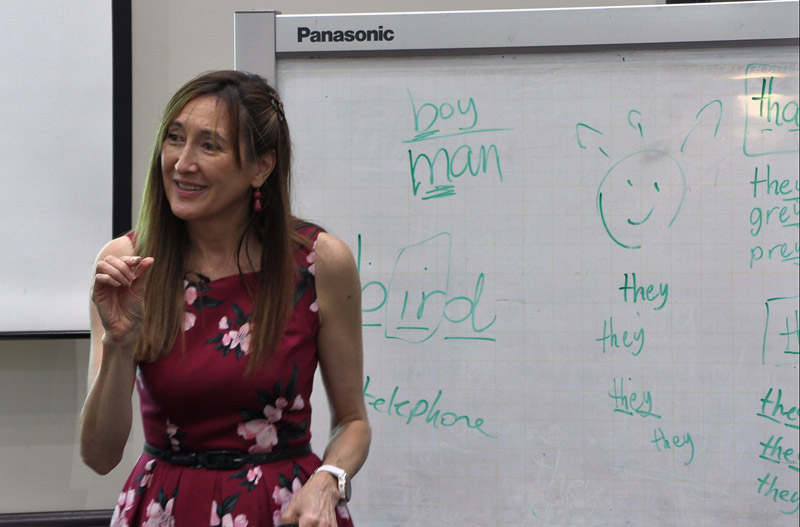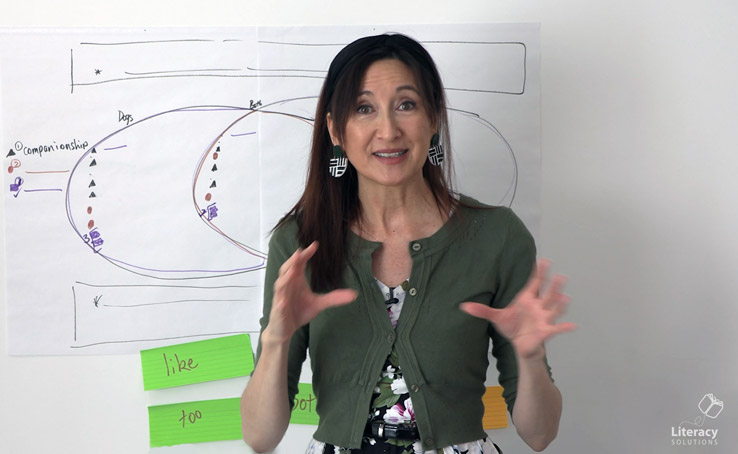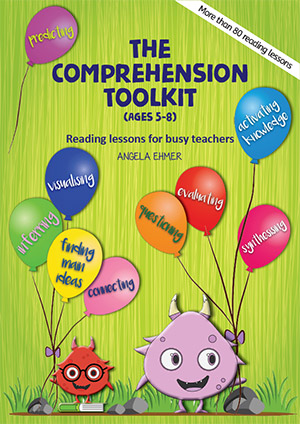May 2009
Hi All
I hope the term is progressing well. It's been wonderful to see so many familiar faces at our workshops and in schools so far this year.
In this issue we look at:
- More new workshops
- New workbook - 'Supporting Readers and Writers'
- Guided Reading Back on the National Agenda
- NAPLAN performance and the next step
Happy reading
Angela
More new workshops
Two of our four new workshops for 2009 have been warmly welcomed by many of you already. Struggling Readers and Writers and Guiding Writers will continue to be presented throughout 2009. We have been hard at work finalising two additional workshops that will be first presented in Ipswich on June 1. Further details about both workshops are available below.
'Teaching Literacy (Strategies for the Expert Teacher)'
A new full day workshop, 'Teaching Literacy (Strategies for the Expert Teacher)' is aimed at experienced teachers of literacy looking to further enhance their ability at effectively promoting the language and literacy skills of children.
This workshop will assist participants to:
- build on their existing knowledge of literacy acquisition and learning
- gather additional strategies to implement into the daily program
- increase their knowledge of how to better support students to assume greater control over their own learning
'Explicit Teaching of Reading'
We are also offering a new after school workshop - 'Explicit Teaching of Reading'
The Explicit Teaching Workshop addresses the key roles of observation, data analysis and interpretation in order to identify strategies, skills or knowledges applied and neglected by students.
The successful or attempted application of strategies, skills and knowledge provides educators with insights into the ways students problem solve across literacy. An absence of, or incorrect application, provides insights into the ways students must learn problem solving strategies for literacy. Both are equally important in informing, guiding and monitoring future instruction and application.
View our 2009 Workshop Calendar for details about these workshops in your area.

New text - 'Supporting Readers and Writers'
Supporting Readers and Writers has recently been released to coincide with our new workshops for 2009.
Supporting Readers & Writers is an 80 page publication containing activities and teaching guidelines to assist in the development of essential skills and knowledge required for successful literacy learning. It also includes numerous black line masters for classroom use.
Blackline masters - samples now online
A number of blackline masters from this resource can be viewed online. Those attending the Struggling Readers and Writers workshop will received a free copy. Alternatively you can order your copy by completing our Resources order form.
Guided Reading Back on the National Agenda
With guided reading high on the national agenda for 2010, schools must review current practices to ensure alignment with effective instructional models. During a recent conversation about this issue, a teacher asked, “Which version of guided reading are we implementing in 2010?” Perceptions of guided reading vary from school to school, classroom to classroom. So which version are we implementing?
Perhaps the answer is clearer when the instructional goal and overall teaching purpose are examined though a quick Q & A.
- Q. What is the purpose guided reading?
- A. To provide opportunities for all students to problem solve the text.
- Q. What are teachers expecting to observe during guided reading?
- A. Application and generalization of reading strategies, skills and knowledge by students
- Q. What increases opportunities to observe these behaviours?
- A. A greater volume of text being read
- Q. How is comprehension taught?
- A. Rich, deep discussions around the text involving literal, inferential and evaluative thinking by all students
- Q. Is round robin reading the same as guided reading?
- A. No. Round robin reading provides fewer opportunities for independent problem solving of the text by all students. The purpose of guided reading is to increase the amount of problem solving for all students.
- Q. Is there a place for paired or choral reading during guided reading?
- A. Paired or choral reading may form part of a strategy for meeting the instructional goal after problem solving, eg. returning to the text and teaching for fluency or elements of prosody.
- Q. What is the role of the adult?
- A. To support strategic reading by students, observe student reading behaviour and identify future instructional goals
So which version of guided reading are we implementing? If the purpose is provide all students with opportunities to problem solve greater amounts of text, there is only one version.
NAPLAN performance and the next step
With the 2009 National Assessment Program – Literacy and Numeracy (NAPLAN) just completed, Australian educators now await the outcomes. A review of Queensland's performance in 2008 led to initiatives to improve student outcomes for 2009. In excess of 158,000 students sat practice tests in March, with the hope of lifting literacy and numeracy scores across Queensland.
NAPLAN follows the release of the final report by Professor Geoff Masters, A Shared Challenge: Improving Literacy, Numeracy and Science Learning in Queensland Primary Schools. This report, delivered to Premier, Anna Bligh, and Education Training Minister, Geoff Wilson, has prompted much discourse about Professor Masters’ recommendations and possible actions and initiatives to be implemented across Queensland.
With a midterm goal of Queensland students reaching the target of Australia’s highest performing states (NSW and VIC) by 2012, Professor Masters’ recommendations are likely to action significant change. Mr Wilson indicates that the Government will invest $72 million over the next four years to improve Queensland’s standards.
Professor Masters’ recommendations include:
- aspiring teachers sit tests to demonstrate a threshold of knowledge in literacy, numeracy and science, as a condition of registration
- a new structure and program of advanced professional learning for primary school teachers
- advanced training for specialist teachers in literacy, numeracy and science
- introduction of standard science tests at years 4, 6, 8 and 10 to screen students and monitor progress
- advanced professional learning and support for school leaders.
In addition to these recommendations, Mr Wilson states that the funding allocated will support summer schooling and literacy and numeracy coaching programs for students.
Professor Masters’ full report is available for public comment and Mr Wilson invites stakeholders and members of the public to submit their views for consideration in future planning. Submissions close 29 May.
That's all for now.
Angela Ehmer




